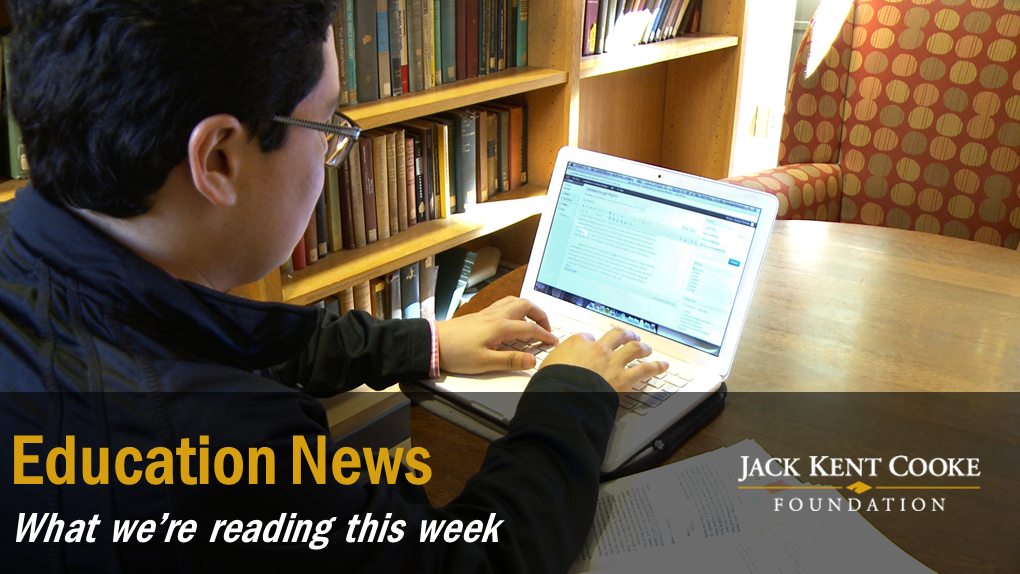October 7: Education News We're Reading This Week

October 7, 2016 – Here’s our weekly roundup of education news you may have missed. In the spirit of the election, several articles debate education policy issues and focus on where there is common ground.
Elementary & Secondary Education:
-
In contrast to the political polarization surrounding the upcoming election, Brookings finds several shared policy priorities for education: raising education spending, accountability for teachers and schools, enhanced choice among public school options, and early childhood education.
-
Responding to new federal accountability requirements, Bellwether Education Partners outlines a simple, clear, and fair school ratings system for states. The paper proposes “an incentive to help all students reach higher and higher levels of achievement” beyond proficiency. Advocate groups including the National Association for Gifted Children have previously called for grade-level proficiency to be viewed “as a minimum rather than an end goal.”
-
To close achievement gaps, should public policy focus on schools or family circumstances? Johns Hopkins University Institute for Education Policy publishes a friendly debate between two education advocates.
Higher Education:
-
Another great scholarly debate featured by American Enterprise Institute considers whether colleges should be required to accept Advanced Placement (AP) credits.
-
48 percent of college students reported “very low” or “low” food security in a recent survey. The Washington Post notes that “more than half of the students who reported experiencing hunger during their college years also held paying jobs, received financial aid, and many were enrolled in a meal plan.”
-
Money Magazine delves into the misconceptions about financial aid eligibility that deter many students from filling out the FAFSA. Additionally, the “unnecessarily mysterious” cost of college makes planning difficult for students and families, says The Atlantic.
Cooke Foundation Highlights:
-
In The Huffington Post, Executive Director Harold O. Levy explains why expanding college access should be a national priority: “The sad truth is that the best predictor of whether a young person will go to college is not intelligence, grades, ambition or hard work. It is family income.”
-
Cooke Young Scholar Grant Regen explains how to get started in planetary astrophotography in Astronomy magazine.
Cooke Foundation Scholarship & Grant Opportunities:
-
We are now accepting applications for our College Scholarship Program. High-achieving high school seniors should apply now for this generous award. The foundation provides recipients with up to $40,000 per year toward their degree, in addition to college advising and opportunities for internships, study abroad, and graduate school funding.
-
Our Undergraduate Transfer Scholarship application is also currently open. Community college students who are determined to complete their bachelor’s degree can apply now for up to $40,000 per year, along with opportunities for study abroad, internship stipends, graduate school funding and more!
-
Submit your proposal for a Good Neighbor Grant. Selected grantees in the metropolitan Washington, D.C. area will receive a one-time grant of between $10,000 – $35,000 to support the establishment of new programs or the enhancement of existing initiatives that support high potential, low-income students.